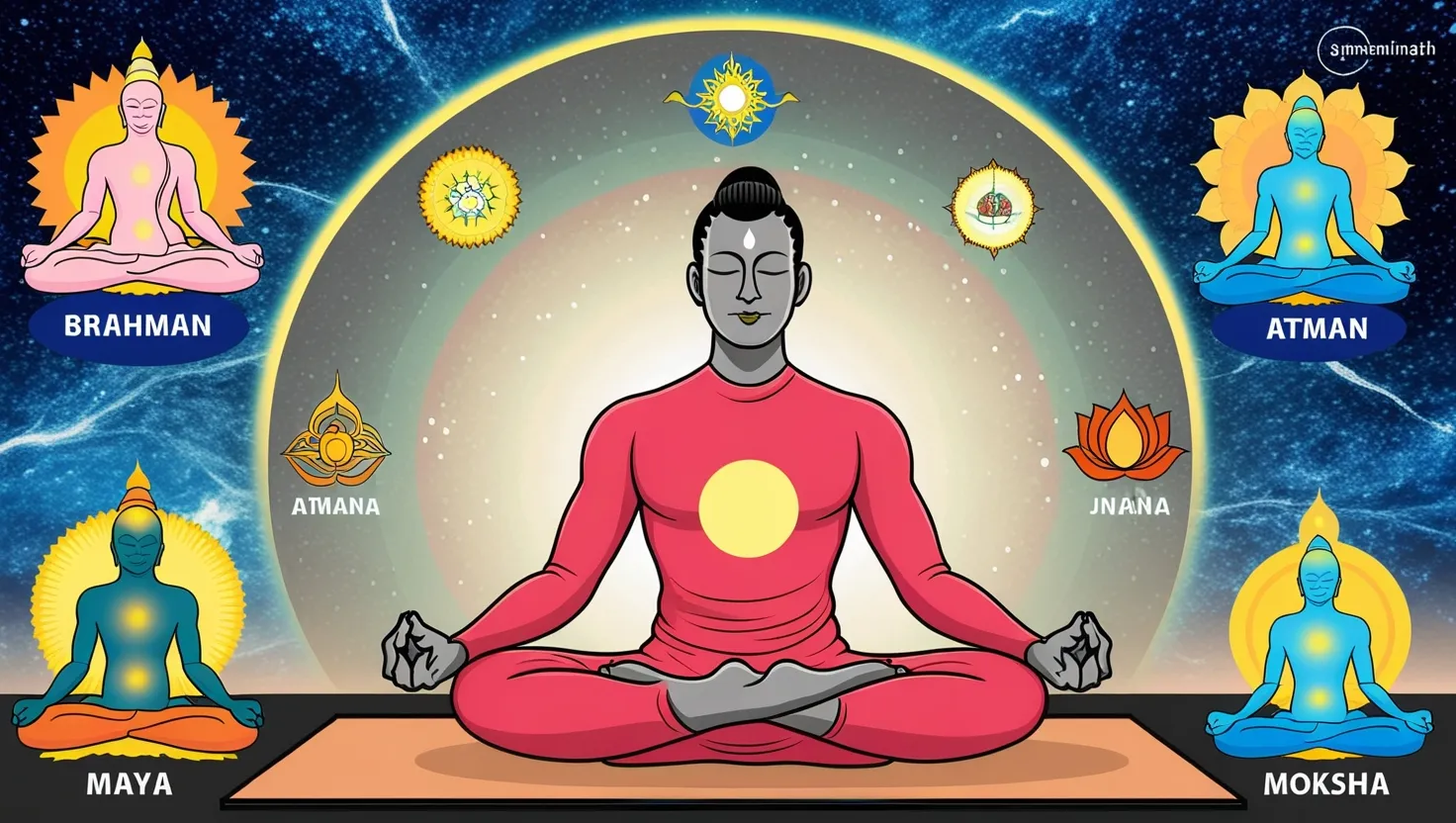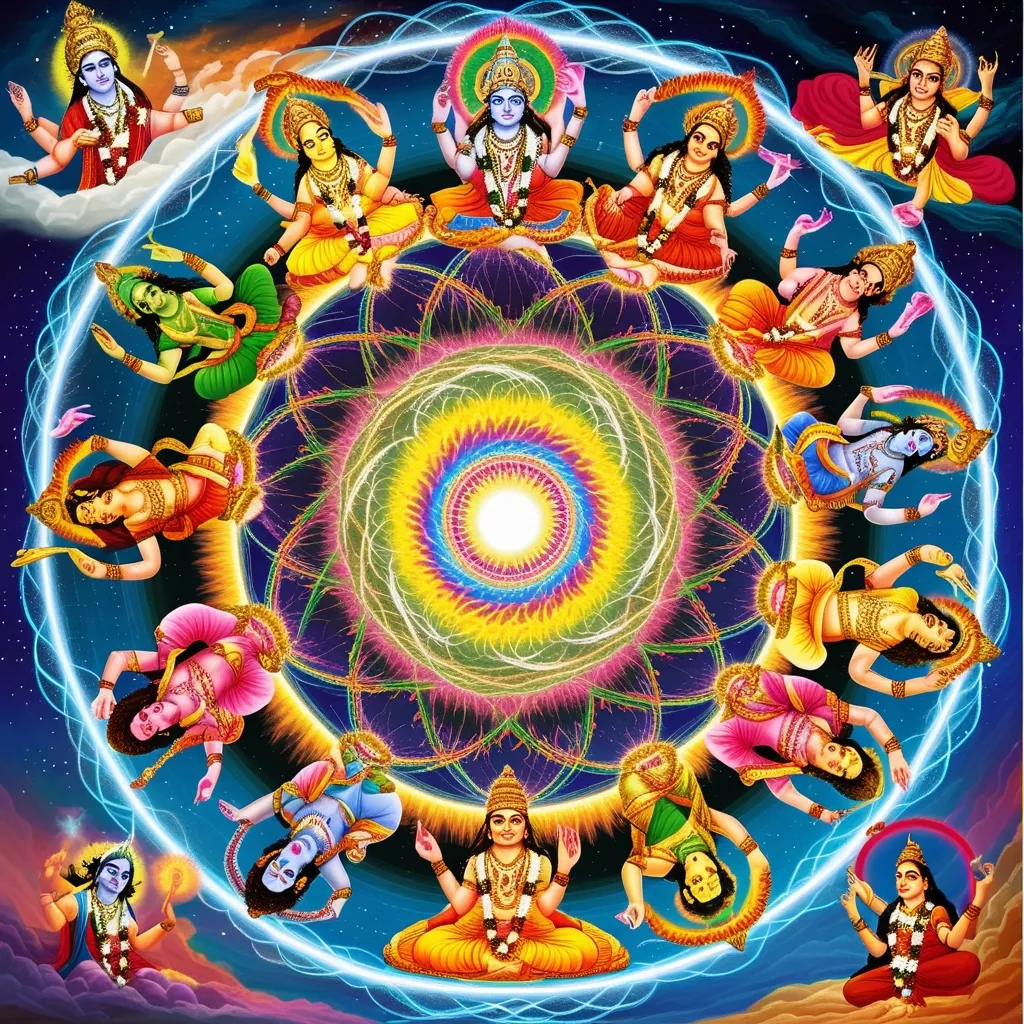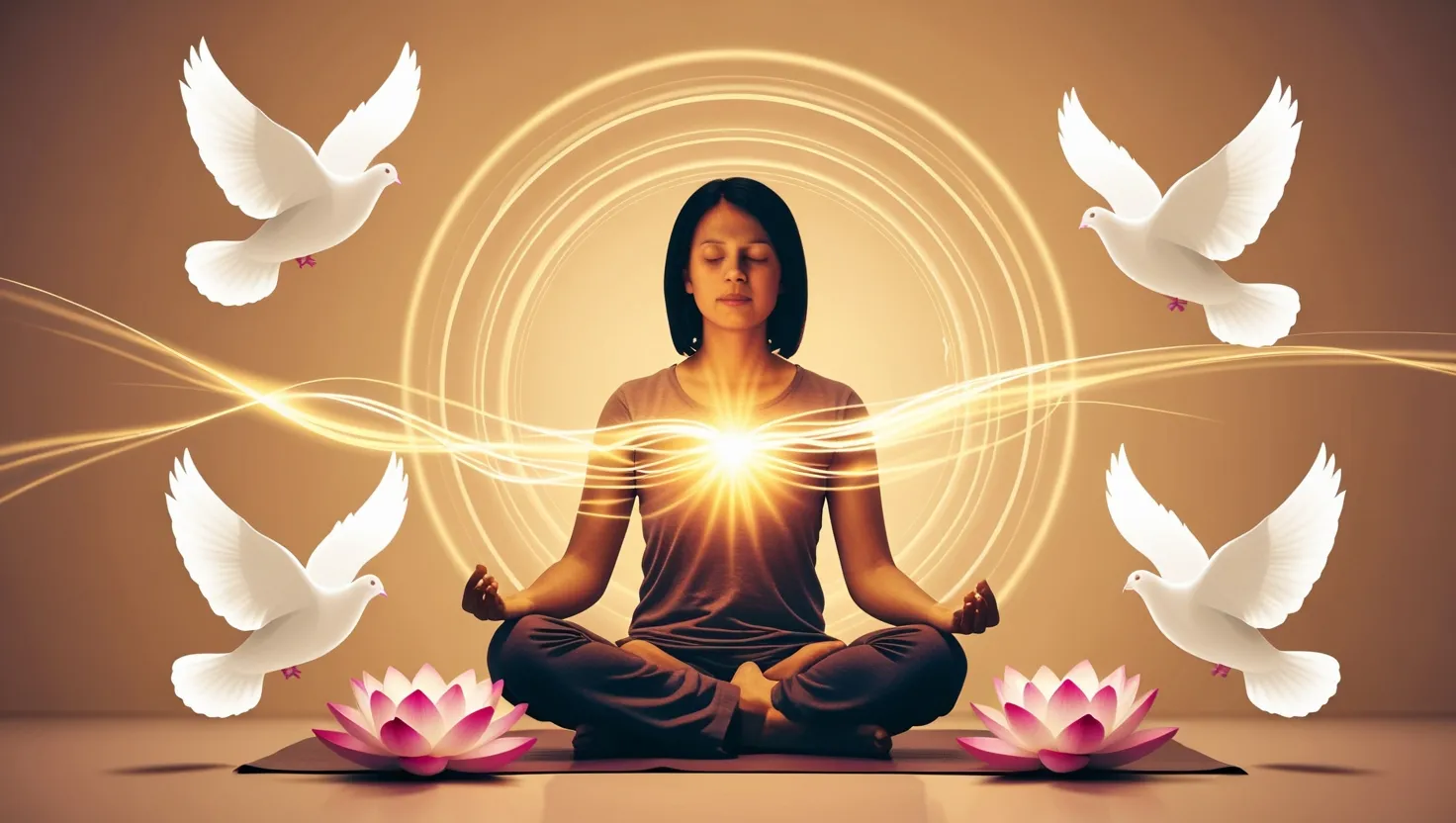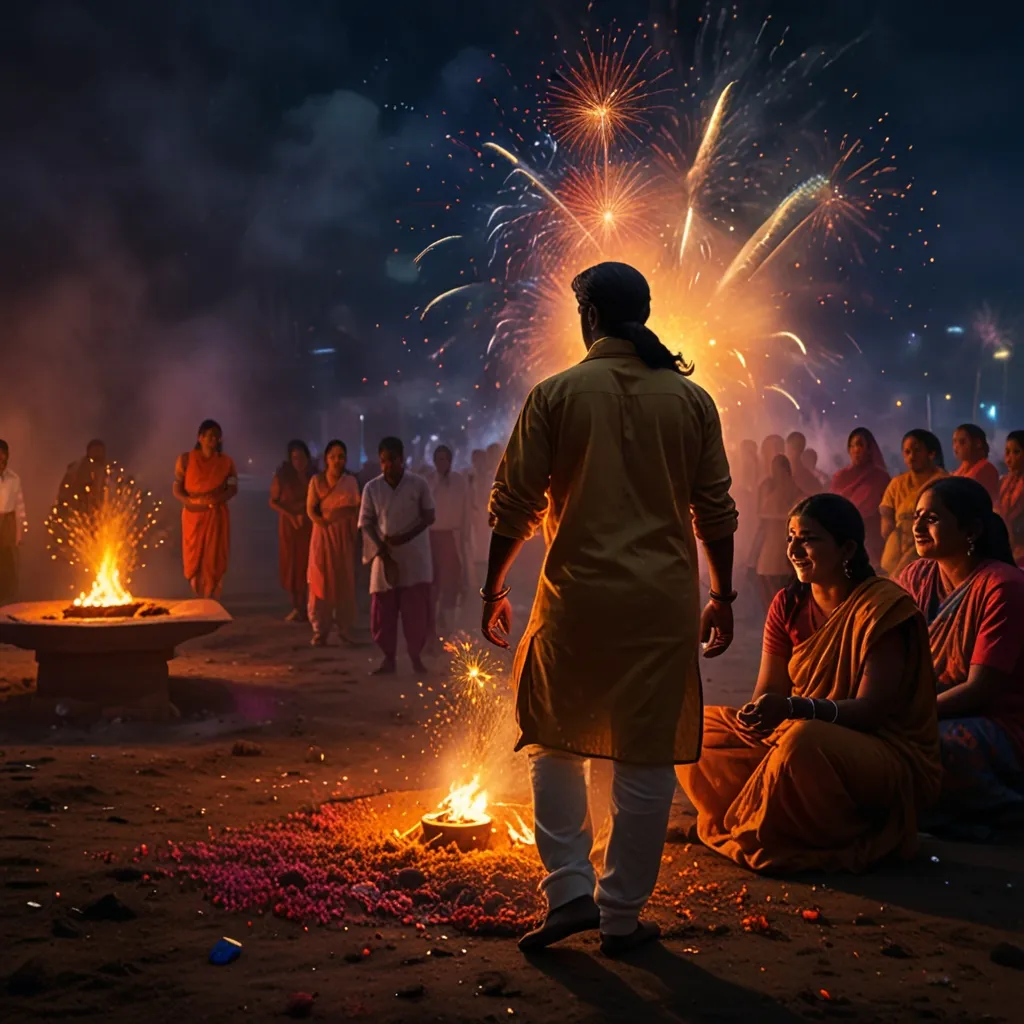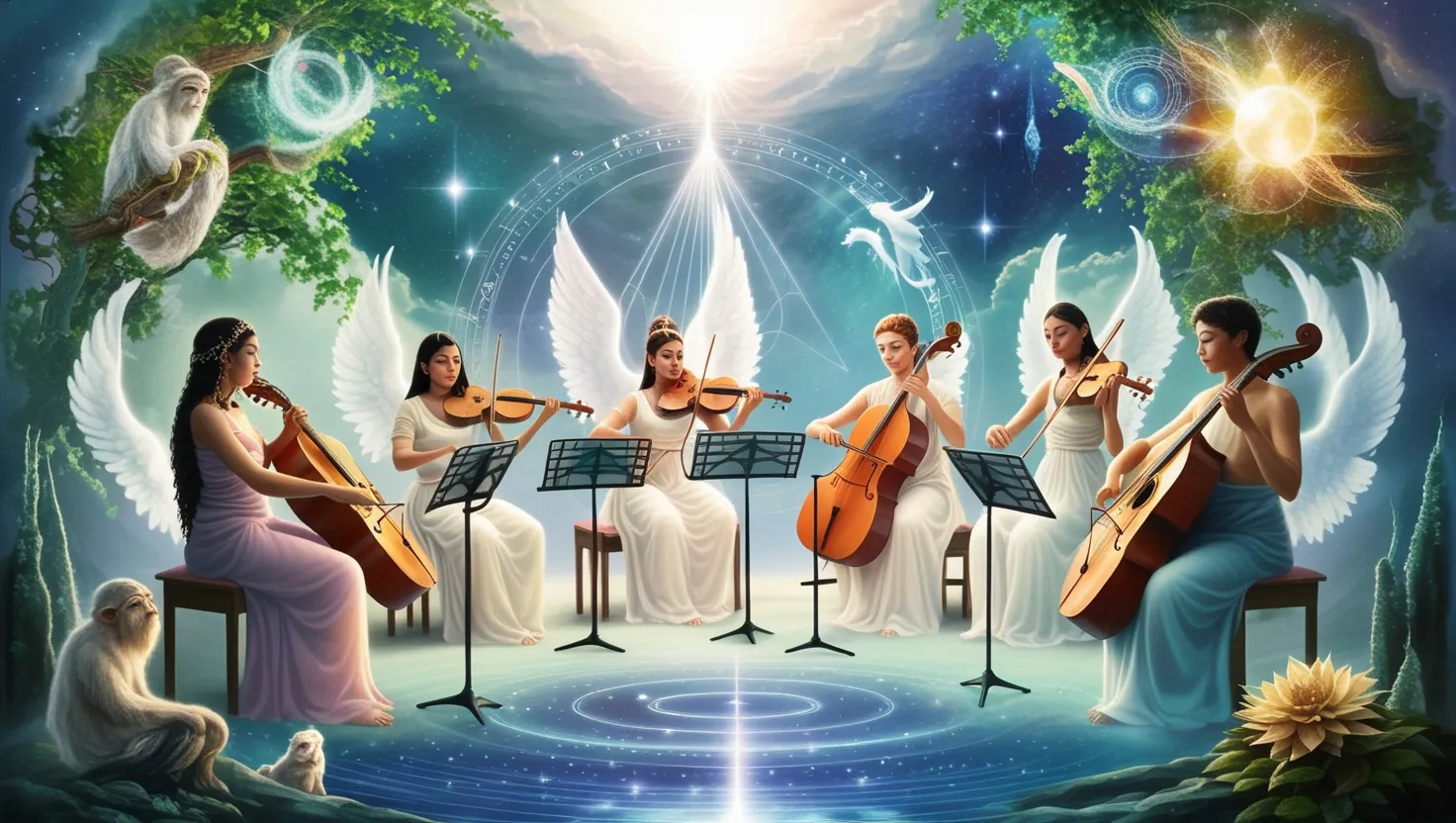In the vast and intricate landscape of Vedic sound philosophy, there exists a concept that resonates deeply with the very fabric of creation: Pratishruti. This idea, often overlooked in favor of more popular discussions on mantras, offers a unique and profound perspective on how sound echoes through the universe, bridging the gap between the tangible and the sublime.
To understand Pratishruti, we must first delve into the fundamental relationship between sound and space. In Vedic texts, the element of space, or Akasha, is qualified solely by the property of sound, or Shabda. This relationship is not merely theoretical; it is rooted in the physical and metaphysical realms. When a surface vibrates, these vibrations are transferred through air molecules, eventually reaching our eardrums and being recognized as sound. This process underscores that sound is not just a sensation but a fundamental aspect of the universe, propagated through the medium of space[1].
Pratishruti, or the cosmic echo, extends this concept further by suggesting that all creation is an echo of a primordial vibration. Imagine the universe as a vast, divine chamber where every sound, from the subtlest whisper to the loudest thunder, resonates and reverberates. This idea is not just poetic; it is grounded in the ancient Vedic understanding that the world is sound, or “Nada Brahma.” Here, sound is not just a tool for communication but a fundamental building block of reality[2].
The power of Pratishruti lies in its ability to connect us with the deeper layers of existence. When we chant mantras or engage in sacred sounds, we are not just producing noise; we are invoking specific energies and frequencies that resonate through our being and the universe. Each mantra, composed in the sacred language of Sanskrit, is believed to have the power to shift our consciousness, fostering feelings of unity, harmony, and connectedness. This is because mantras are designed to tap into the primal vibrations that underlie all creation, aligning our individual energies with the cosmic echo[2].
One of the most fascinating aspects of Pratishruti is its role in understanding the nature of consciousness. According to Vedic philosophy, sound is not just an external phenomenon but an internal one as well. The process of speech production, for instance, involves the coordination of space, air, and heat within the vocal tract, resulting in the creation of sound. This internal process mirrors the external universe, where sound is the primary property of space. This interconnectedness suggests that our consciousness is itself a manifestation of the cosmic echo, with every thought and emotion resonating within the larger symphony of existence[1].
The concept of Pratishruti also highlights the importance of the seven chakras, or energy centers, in our body. Each chakra corresponds to a specific sound frequency, and when these frequencies are stimulated through chanting or sacred sounds, they help balance and unblock the flow of energy within us. This balance is crucial for our physical, emotional, and spiritual well-being, as it aligns our internal vibrations with the cosmic echo, fostering a state of harmony and equilibrium[2].
In practical terms, understanding Pratishruti can offer profound benefits in our spiritual practices. For instance, when we engage in Vedic sound healing, we are not just listening to soothing sounds; we are participating in a ancient tradition that seeks to align our being with the divine resonance of the universe. This practice encourages mindfulness and inner awareness, helping us become more present and attentive to our thoughts, emotions, and physical sensations. As we immerse ourselves in the vibrations of sacred sounds, we cultivate a deeper connection with our inner self and the world around us[2].
The idea of Pratishruti is also reflected in the Sphota Theory of Bhartrhari, a renowned philosopher who explored the nature of language and sound. According to this theory, words and sentences are not just collections of sounds but unified entities that burst forth with meaning. When we hear a word, we initially perceive the different sounds, but eventually, we recognize the word as a whole, much like how we experience the cosmic echo as a unified resonance. This theory underscores that sound is not just a medium of communication but a carrier of meaning and consciousness[3].
As we delve deeper into the concept of Pratishruti, we begin to see the universe as a vast, interconnected web of sound and vibration. Every action, every thought, and every emotion sends ripples through this web, echoing through the fabric of existence. This perspective offers a fresh insight into our place in the cosmic order, reminding us that we are not isolated entities but part of a larger symphony.
In this symphony, each sound plays a crucial role. The chanting of mantras, the recitation of sacred texts, and even the simple act of speaking all contribute to the cosmic echo. When we understand this, we begin to appreciate the power and responsibility that comes with sound. We realize that our words and actions have the potential to either harmonize or disrupt the balance of the universe.
Pratishruti, therefore, is not just a philosophical concept; it is a practical guide for living in harmony with the universe. By aligning our internal vibrations with the cosmic echo, we can achieve a state of deep relaxation, stress relief, and spiritual growth. This alignment is not just beneficial for us individually but also for the world around us, as it fosters a sense of unity and interconnectedness.
As we explore the realm of Pratishruti, we are invited to step into a world where sound is not just a sensory experience but a gateway to the divine. Here, every sound is a reminder of the primordial vibration that underlies all creation, and every action is an opportunity to resonate with the cosmic echo. This journey is not just about understanding a philosophical concept; it is about experiencing the very essence of existence.
In the end, Pratishruti teaches us that we are not just passive listeners in the grand symphony of the universe; we are active participants, each contributing our unique voice to the cosmic echo. As we chant, speak, and live, we are echoing the primordial vibration that created the universe, and in doing so, we are aligning ourselves with the deepest and most profound aspects of reality. This is the true power of Pratishruti – a power that resonates within us all, waiting to be discovered and celebrated.

